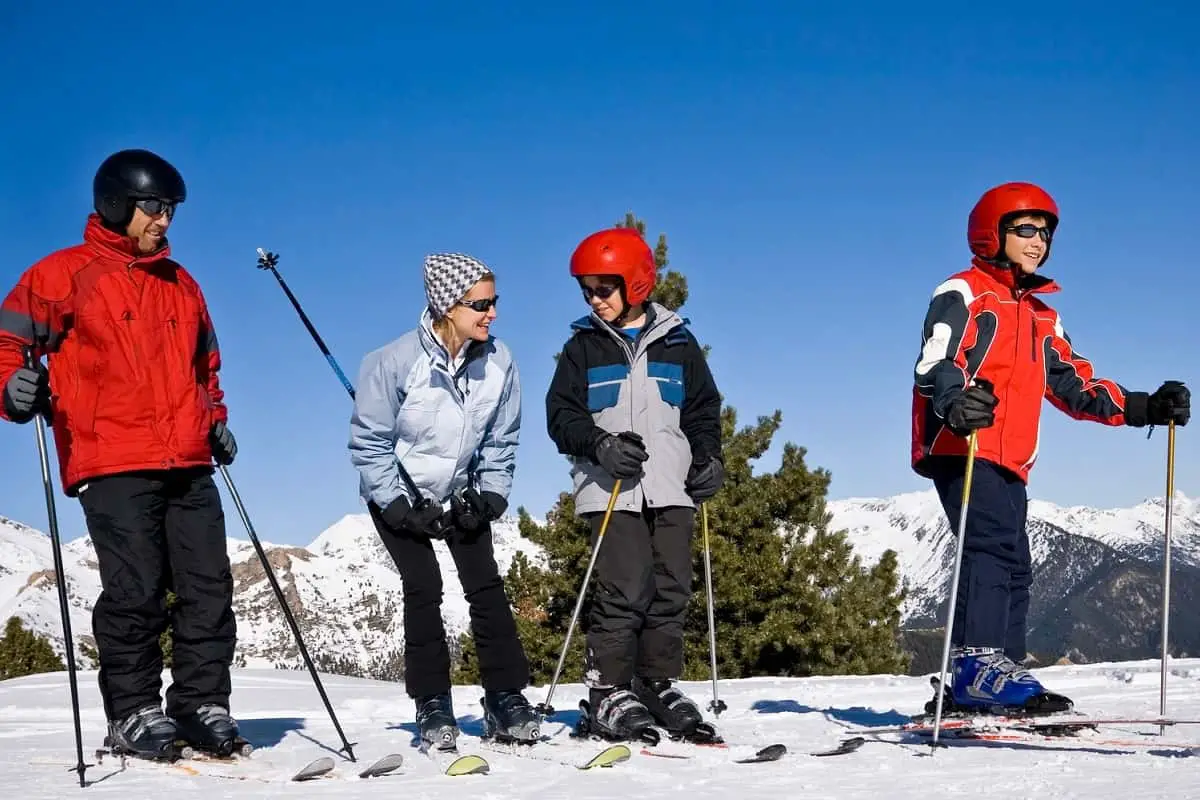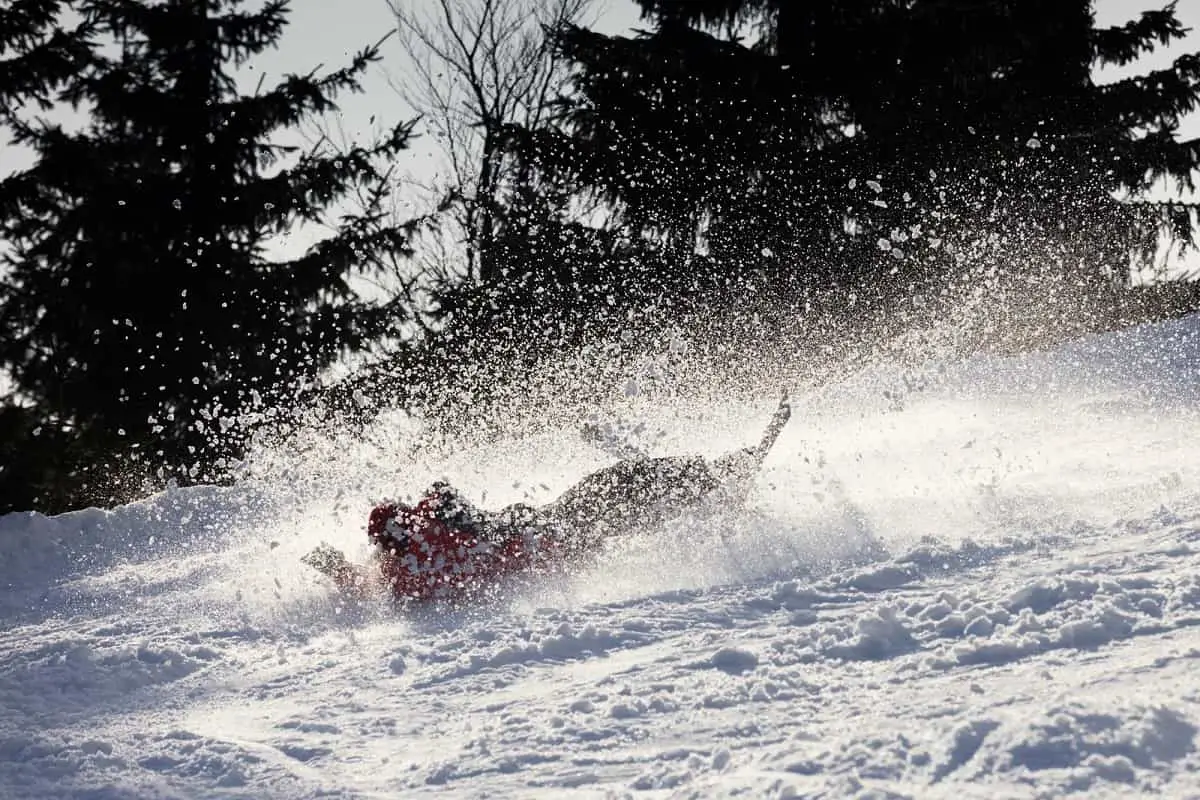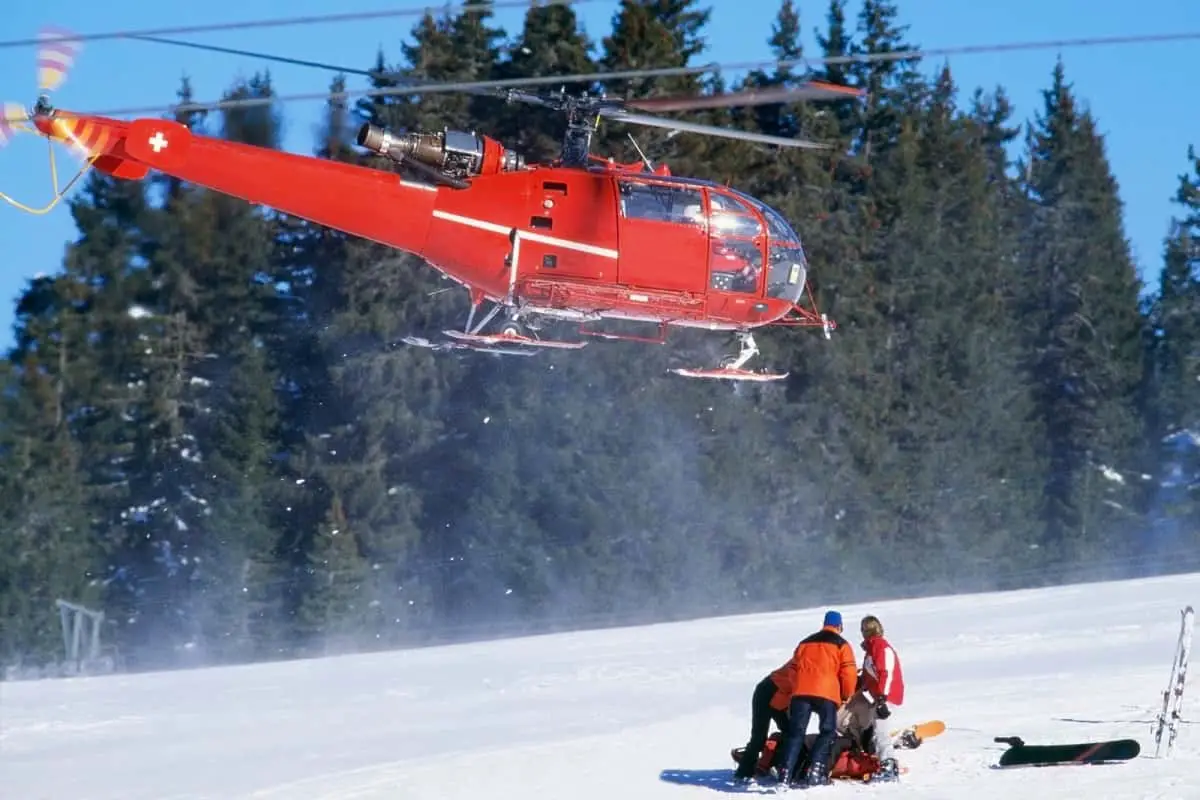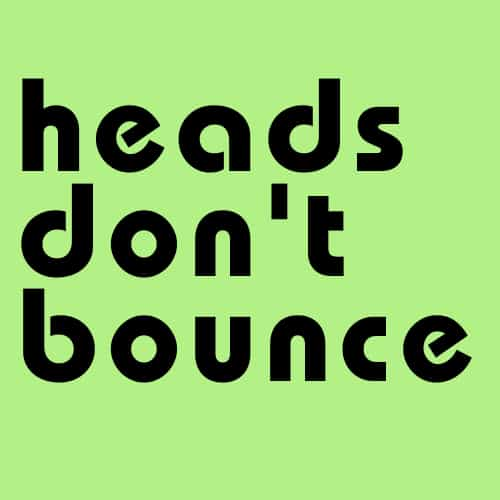Do You Need A Helmet To Ski?
If you end up heading for the hills this ski season, you’ll no doubt notice that the majority of skiers and snowboarders are wearing ski helmets. You will also notice a few people that are not wearing helmets, which may lead you to wonder whether wearing a snow helmet when skiing is mandatory or not.
Simply put, no you don’t need a helmet to ski in most places, however, it is generally a good idea to do so anyway. Wearing a helmet can reduce the severity of some head injuries you might receive while on the slopes, as well as keep your ears warm.
In this article, we’ll be taking a look at why most people choose to wear a ski helmet nowadays, and the benefits you can get from wearing one as well.
Page Content

Disclosure: As an Avantlink and Amazon Associate, we earn from qualifying purchases. Disclosure Statement.
Where Do You Need a Helmet to Ski?
This entirely depends on where you plan to go skiing. Some European countries have mandated that ski helmets are compulsory for children when skiing or snowboarding, while in other countries, only certain states or provinces mandate the use of ski helmets.
You may also find that some locations and resorts have their own helmet rules in place which you can’t avoid, that is assuming you want to make use of their facilities.
RECOMMENDED: Snowboard Helmets With Visors
Are Helmets Required At Ski Resorts?
Resort-specific helmet rules may be for children, employees, everyone, or no one. You would need to check with your resort of choice before you leave home.

For example, in the United States, ski helmets are optional everywhere, with the exception of the state of New Jersey and the Vail Ski Resort in Colorado. Similarly, in Canada, ski helmets are optional in every province with the exception of Nova Scotia.
What percentage of skiers wear helmets?
Despite the fact that ski helmets are largely optional, more people than ever before are choosing to wear them.
The National Ski Areas Association (NSAA) reported in July 2023 that in the United States ski areas during the 2022-23 ski season that 88% of skiers were now wearing ski helmets. Although this is a slight drop on the previous season’s 90%, helmet usage by children was up to 98% for the 2022/23 season.
This represents a significant increase since the NSAA started collecting helmet usage data in the 2002-03 season, at which time only 25% of skiers and snowboarders wore helmets.
SUGGESTED: Snowboard Helmets With Bluetooth

How Does a Ski Helmet Protect You?
Ski helmets work to protect your head by absorbing the energy from an impact and dissipating it. It’s worth noting, however, that ski helmets, in general, don’t prevent concussions, but then again, no helmet can prevent concussions, yet they do go a long way toward softening the blow.
SUGGESTED: Ski & Snowboard Helmets For Big Heads
Ski and snowboarding helmets have a foam lining on the inside. Mostly this foam will be EPS (Expanded Polystyrene), but in some helmets, there is EPP (Expanded Polypropylene). The purpose of the foam liner is to absorb the impact when you fall in order to reduce the severity of head and brain injuries.
For your ski helmet to provide the best protection for your head, the helmet must fit your head snugly. There’s little point in wearing an oversized helmet that might slip when you fall. Just as an undersized helmet will be uncomfortable and give you a headache which can affect your concentration.
Starting out with the right size ski helmet is better than trying to adjust a helmet that is never going to fit properly.
Over the decades there have been several high-profile ski-related deaths where helmets weren’t worn which led to increased awareness of the possibility of head injuries and death even on relatively mild ski slopes.
This content was originally published on headsdontbounce.com. If it appears on another website, it is a violation of the copyright owned by headsdontbounce.com.
Are There Risks to Wearing a Ski Helmet?
There is some debate as to whether wearing a ski helmet is riskier in some regards than not wearing one. In particular, some critics have suggested that wearing a ski helmet can actually cause more injuries since wearing a helmet might encourage skiers to take more risks because they feel invincible.
However, these criticisms appear to be largely unfounded as studies have shown that although wearing a helmet may increase the risk of dangerous behavior by some people, overall the number of head injuries from skiing has been dropping year on year.
The NSAA report from July 2023 shows that between 1995 to 2012 snow-related head injuries dropped from 4.2% to 3%. That represents an overall improvement of about 28.6%.
RECOMMENDED: Ski & Ski Helmets with MIPS
The fact that more people than ever before are wearing helmets suggests that people are generally being more cautious and mindful of their own safety.

Accidents Can Happen at Any Time
Perhaps you’re thinking that you can avoid having to wear a helmet if you just avoid putting yourself in situations where you might get into an accident. True, you could definitely reduce the risk of a serious accident by slowing down and being more careful, but you can’t account for the conditions on the slopes or how careful everyone else is being.
You might encounter a particularly icy patch of snow without warning and hit your head as you fall, or you might accidentally collide with an out-of-control skier. Or, you might be skiing through a wooded trail and hit your head on a low tree branch. That’s the thing about accidents; they always happen when you least expect them.
Conclusion
The main thing you need to know is that wearing a helmet skiing isn’t mandatory in most places, however, a snow helmet may be required in some places either due to state laws or local rules.
For the most part, wearing a helmet skiing is a matter of personal preference. A ski helmet won’t totally protect you from injury, but if you do happen to fall and hit your head while skiing, a helmet can make your injuries less serious than without a helmet.
In any case, the proven benefits of wearing a ski helmet far outweigh the supposed risks, so there’s no reason to not wear a ski helmet.
Save To Pinterest:

I hope we have covered the question of ‘do you need a helmet to ski’ to your satisfaction. If you enjoyed this article, take a look at the related reads below for some more interesting reads!
Related Reads:

